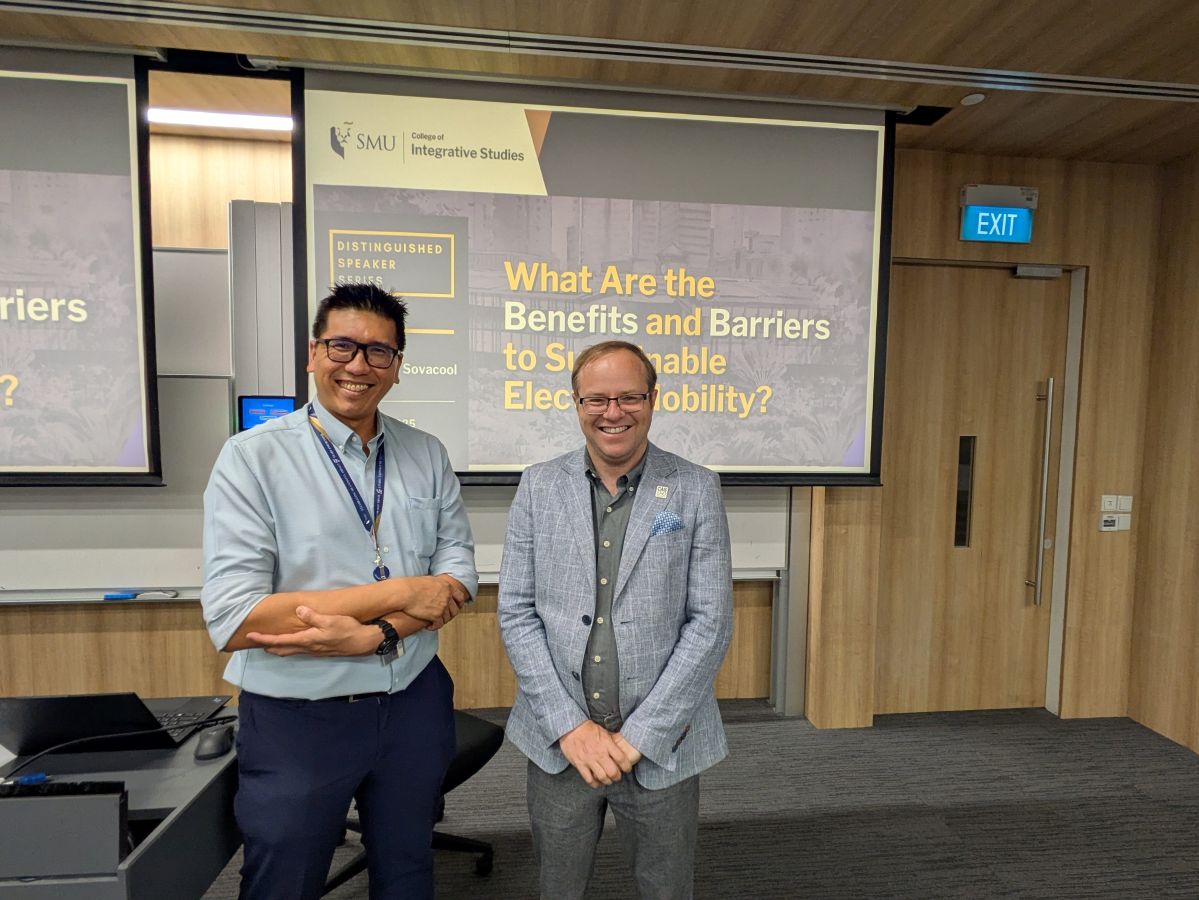What Are the Benefits & Barriers to Sustainable Electric Mobility?

At our recent seminar, we were honoured to host Prof Benjamin Sovacool — Professor of Earth and Environment and Director at the Boston University Institute for Global Sustainability, as well as Professor of Energy Policy at the Bennett Institute for Innovation and Policy Acceleration, University of Sussex Business School.
In a thought-provoking session, Prof Sovacool dismantled widely held myths surrounding electric vehicles (EVs) and vehicle-to-grid (V2G) systems, drawing on his mixed-methods research across the Nordic region. His presentation uncovered the often-overlooked socio-technical complexities that continue to shape EV adoption and V2G potential.
Key Insights:
✅ EV challenges go beyond cost and range anxiety
Even in Norway — where 96% of new car sales are battery electric — EVs face technical, cultural, and political resistance. For example, car dealerships often dissuade buyers due to concerns about lost maintenance revenue.
⚡ Underused potential of V2G
EVs are idle 90% of the time, yet their batteries could provide crucial support to national grids. In Denmark, V2G integration could yield savings of $1,200 per vehicle per year. However, few early adopters considered V2G functionality when purchasing an EV.
🚗 Consumer decisions are emotional, not just practical
The study revealed strong emotional and gender-based perceptions. Conventional cars were associated with virility and status, while EVs were sometimes described as "dustbins on wheels."
🌍 The hidden footprint of EVs
Used petrol vehicles are often exported to Eastern Europe and Africa, displacing pollution rather than eliminating it. Additionally, ethical concerns such as child labour in Congolese cobalt mining challenge the "green" narrative of EVs.
🧩 Policy shifts needed for V2G adoption
EV incentives alone are insufficient. Real progress will require grid-focused policies — such as aggregator markets, voltage regulation standards, and support for fleet-based V2G pilots.
Prof Sovacool’s central message:
Equity must be embedded in the energy transition. Without addressing justice across social, economic, and environmental dimensions, EV deployment risks deepening existing inequalities.
This seminar was co-organised by the SMU College of Integrative Studies, and expertly moderated by Prof Winston Chow, Pillar Lead (Urban Infrastructure) at the SMU Urban Institute.
A heartfelt thank you to our speaker, moderator, and engaged community for contributing to a stimulating and timely discussion.
📄 Read the full seminar abstract: https://lnkd.in/g24ipgiP
- Prof Sovacool's profile: https://www.bu.edu/igs/profile/benjamin-sovacool/
- Related book: https://link.springer.com/book/10.1007/978-3-030-04864-8